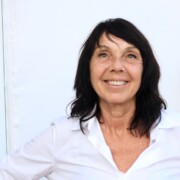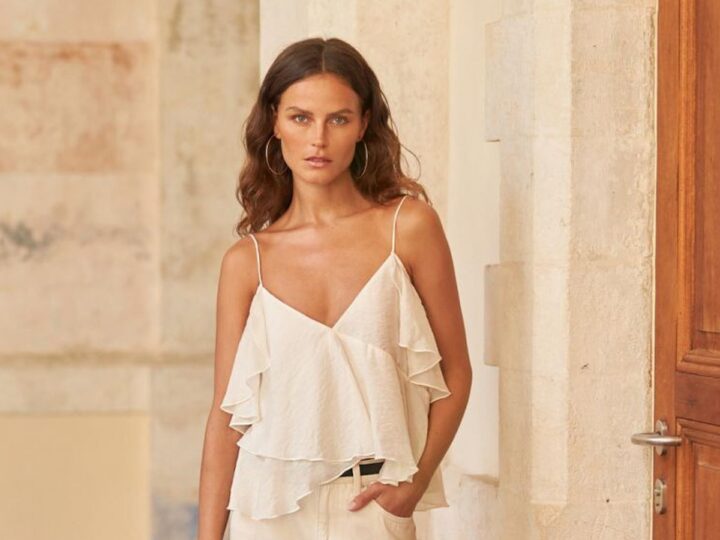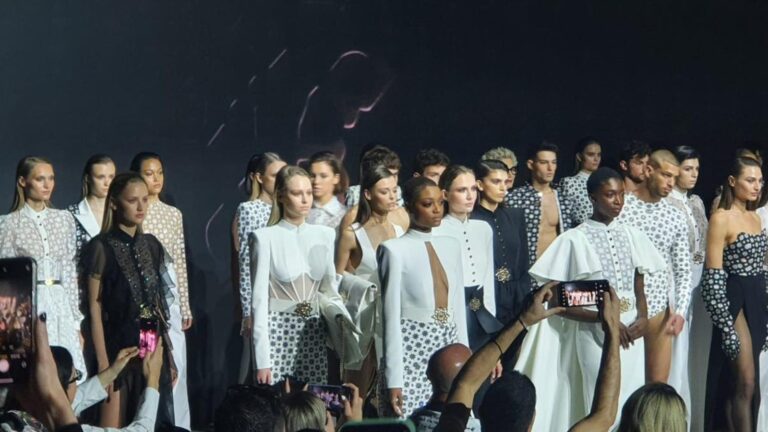Gender inclusivity in Israeli clothing is not new. However, while kibbutz and army uniforms were once a great equalizer, today’s designers of gender-fluid fashions are on a mission to allow people to express their individuality.
Three big names in this field are Hed Mayner – dubbed Paris Fashion Week 2023’s “hidden gem” on Instagram – along with David Weksler and Liel Bomberg from Ultra.
Hed Mayner
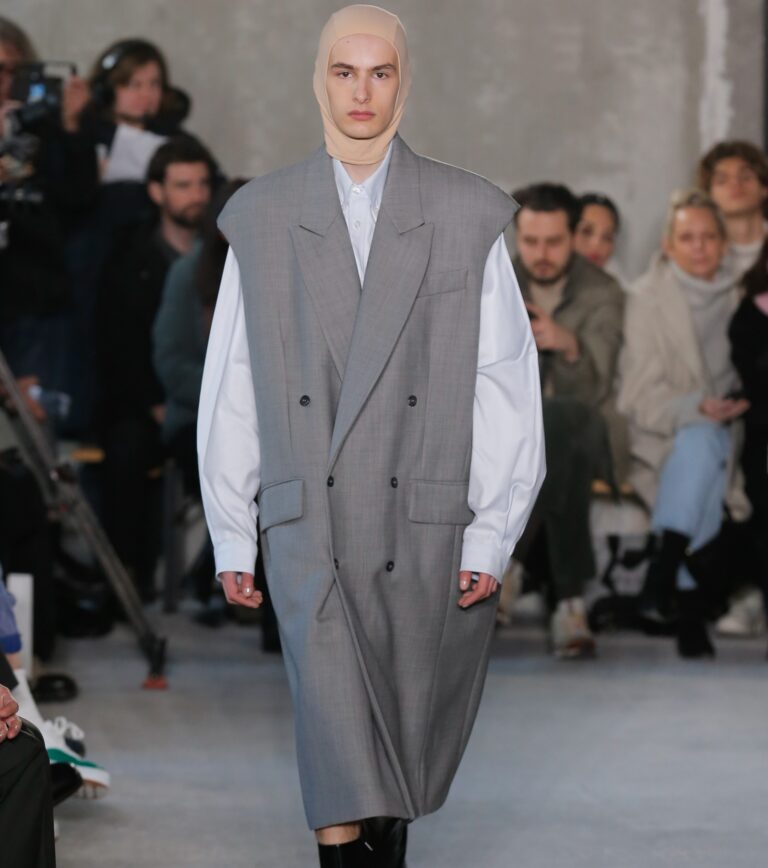
Mayner, whose work appears in Vogue and Vanity Fair, sees his oversized, figure-disguising clothes as “a sculpture, a home and a protection.”
Omer Shahar, head of logistics and communication at the Hed Mayner brand, says, “Although we present in the Men’s Calendar at Paris Fashion Week, Hed doesn’t view the garments as for any specific gender, but rather for everybody, and this is shown in the stores that choose to sell our collections, as the styles are on display in both the women’s and men’s sections.”
Mayner, who studied at the Bezalel Academy of Arts and Design in Jerusalem, followed by a Masters at the Institut Français de la Mode in Paris, began showing at Paris Fashion Week in 2017.
Two years later he received a grant and a mentorship as part of the Karl Lagerfeld Prize for emerging fashion designers – presented by the luxury fashion group Louis Vuitton Moët Hennessy.
Although the Hed Mayner logistics center is based in France, Mayner’s collections are created at his Tel Aviv studio with a team of five, including three Ukrainian Jews, says Shahar.
For Mayner, each season’s collection is “an evolution from the previous.” This year’s more tapered evolution makes his clothes even more inclusive. People of all ages and sizes can feel at home in the wide sloping shoulders and classically inspired box-cuts that he defines as “a sort of parallel reality” to the traditional clothes he grew up around.
The Mayner collection is sold at luxury outlets such as Galeries Lafayette in Paris, Bergdorf Goodman in New York City, and the Dover Street Market in Los Angeles, and NYC, as well as Singapore, Hong Kong and China.
His Israeli market is slower in coming of age. One Sixty Nine, at 169 Dizengoff Street, is Mayner’s sole retail outlet in the country.
David Weksler
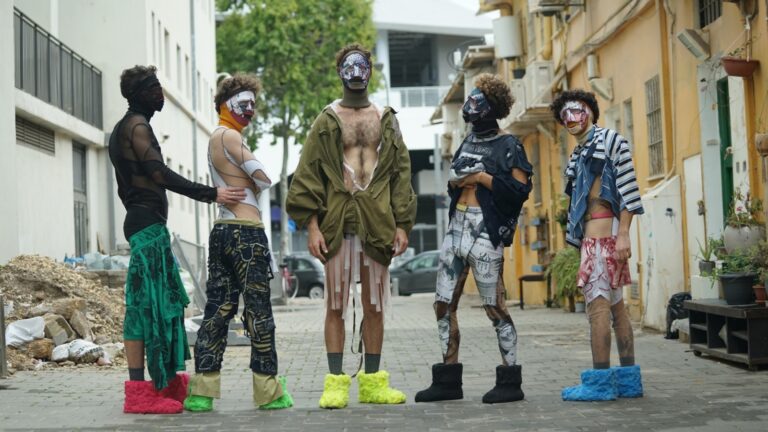
“There is still a long way to go yet for people to be liberated from old norms and be more free and open with how they dress,” says Weksler, who will open Tel Aviv Fashion Week on March 19 with his collection.
Ever since his school days he felt an “inner urge” to deal with “the pressing issues of gender and masculinity and all the changes and challenges it has been facing in these past years.”
After studying at Shenkar College of Engineering, Design and Art in Ramat Gan, Weksler attended Central St. Martin’s design school in London, where he was exposed to a specific way of perceiving Israelis – men in particular.
“I felt that some light should be shed on that topic. I wanted to showcase the beauty and the uniqueness of the Israeli men I knew, in a way that was truer to who and what they are.”
A former menswear designer, Weksler has been drawn to make what he calls “gender free” clothing for the past three years.
“It is homoerotic and emotionally charged, but it is not feminized, not necessarily gentle in the way that we usually perceive something that is not typically masculine. Things are changing, and I want my work to be representative of that.”
His fashion is also sustainable, created from the upcycled material of discarded IDF uniforms and other “preloved” clothing. Weksler believes that there is “emotional and energetic baggage that comes along with wearing someone else’s garments. It’s got history to it.”
Nevertheless, creating gender-fluid fashion is a challenge in a small city like Tel Aviv.
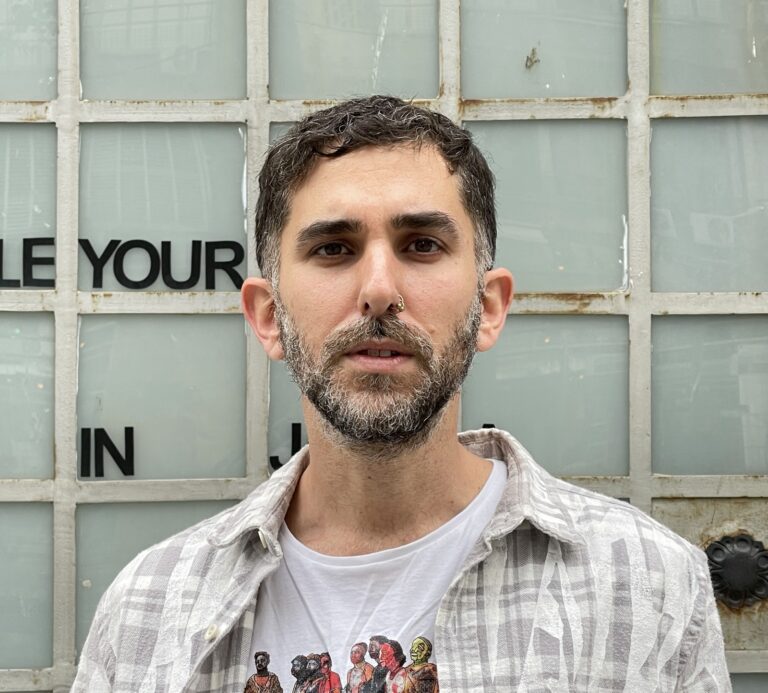
“People need to be very brave and courageous in order to prance around wearing these bizarre or challenging clothes when everybody knows you. It’s a statement, and not everyone is ready, or wants to make that statement and be known as ‘that one.’”
Brought up in “a vibrant Brazilian household” whose culture was “body positive and sex positive,” Weksler says it was natural that his fashions were going to be sexy and provocative.
“I want my clients to be noticed and I want my clothes to convey a message, whether it’s sexual liberation and body positivity or sustainability; and to educate people about different ways of wearing fashion and feeling good within the clothes you are wearing.”
He considers it a “huge gift” to be able to make both men and women feel “desired and hot” in the clothes he makes.
“I don’t necessarily think that men should put on a dress or a skirt to be fluid or to express themselves. It’s more being able to do whatever they want. It could just be like super revealing and super colorful, or a different fabric or cut, maybe a crop top showcasing different body parts.”
In Israel, “with a lot of military people and the whole macho vibe around it,” gender fluid clothing is still considered taboo in many parts of society.
“However, the younger generation, especially here in Tel Aviv and especially in the queer community, but also outside of it, is about challenging masculinity, and I love that.”
Liel Bomberg
The Tel Aviv-born and based swimwear brand Ultra celebrates the spectrum of self-expression by fitting all genders, sizes, colors, ages and shapes.
Bomberg, the designer behind the brand, grew up dreaming of moving to Tel Aviv from his hometown of Petah Tikva. He made this a reality when, at age 18, he signed up for a course in the city.
While Tel Aviv may not be a true reflection of the rest of the country, he says, it is home to all types of Israelis, and has a very colorful gay community. He and his friends, he recalls, always wanted to wear a thong to the beach, yet were not confident that other people enjoying the seaside would react positively.
As “a queer who wants to change the world,” Liel knew that this type of bathing suit was common among men in the US and Australia. His mission: to make people feel comfortable in their own skins, sizes and shapes.
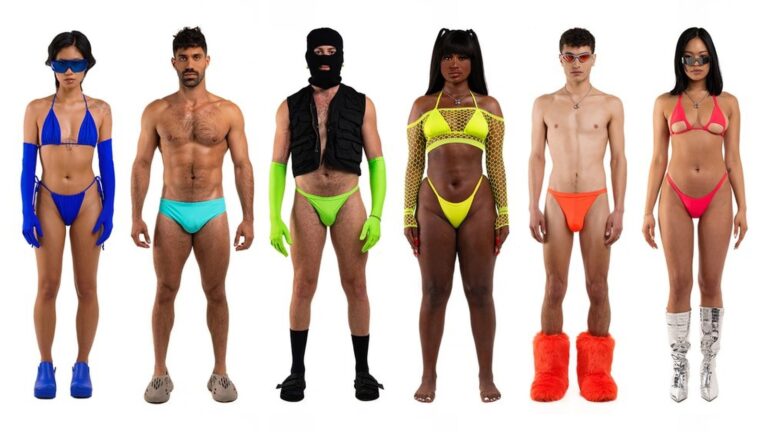
“So we went to the beach in Tel Aviv. We got a lot of attention, good and bad, but on the whole people liked it. Some girls came up to us and said, ‘We love you.’”
Mass production of Ultra’s swimwear started in 2020. Liel says it “took off in the Tel Aviv gay community, spreading fast internationally.”
The Tel Aviv municipality contacted Ultra to be part of a local fashion show that was diverse and international, with minorities from South Tel Aviv (home to Ethiopian new immigrants, Filipino caretakers and Sudanese refugees) and cisgender people.
Bomberg never imagined his brand would get such support from the people and the municipality of Tel Aviv.
“It all blew up really fast. I wanted a brand that was designed, created and manufactured in Tel Aviv, which is something we are proud of achieving,” he says.
Today Ultra also sells in Australia, Brazil and New York. But for Bomberg it is much more than just about sales: “There is also an online community where people share.”
His collection of thongs and bikinis and other beachwear is not divided into articles for men and for women, but rather separated by “what you want to be.”
“Anyone can wear whatever they want, and mix and match.”
Bomberg now is working on his first completely gender-fluid piece that works equally for men and women: a new take on biker shorts.




